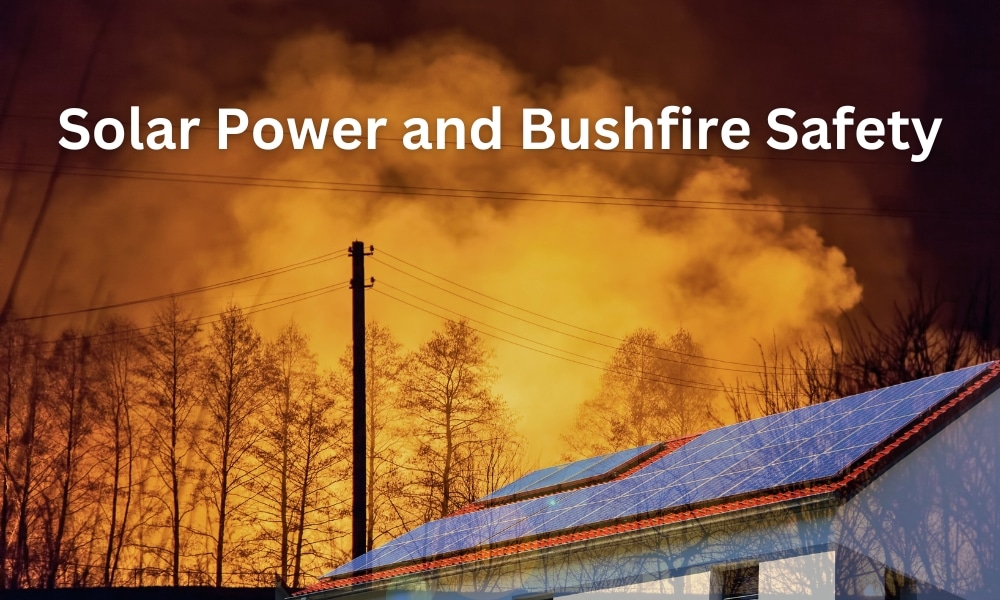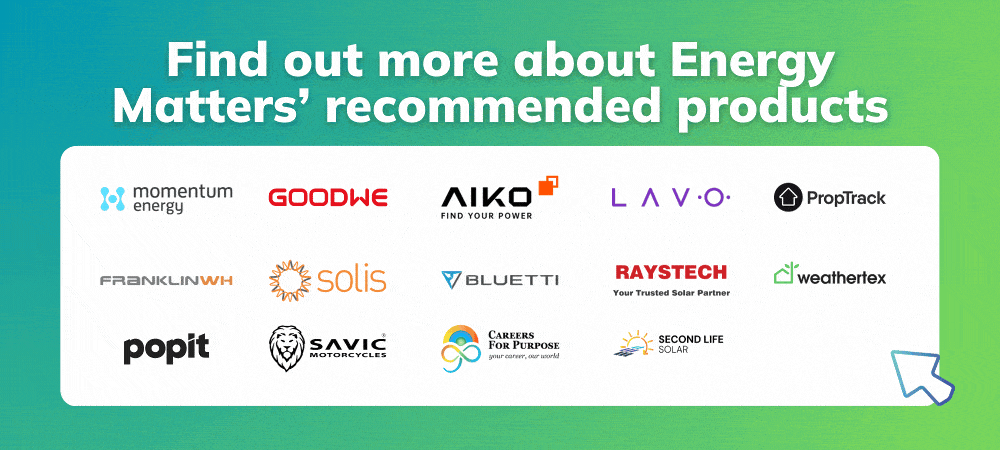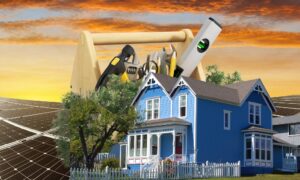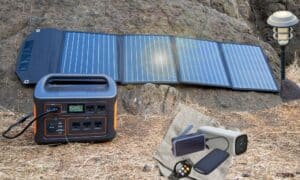Australia’s harsh summers and bushfire seasons challenge homeowners with solar panels. As solar power continues to grow in popularity, ensuring bushfire safety is paramount. This article provides essential tips for protecting your solar system’s efficiency and durability. Following these guidelines can safeguard your investment and enjoy solar power bushfire resilience. Read on to learn how to protect your solar system and reduce risks during bushfire season.
Energy Matters TV Show: Your questions answered!
Got burning questions about solar, EVs, or energy-saving tips? At Energy Matters, we’re committed to helping Australians harness renewable energy safely and effectively. Submit your video to Energy Matters TV for answers to your solar expert questions and get featured on our show!
Energy Matters TV show is your go-to source for solar expert advice on energy efficiency, sustainability, and renewable energy. Our show will be airing on channel 9Life and streaming in early 2025. Join the energy-saving revolution and make your voice heard on Energy Matters TV, Australia’s premier energy solutions show!
Understanding bushfire risks for solar systems
Solar power is a sustainable and cost-effective energy solution, but solar systems are not immune to bushfire risks. High temperatures, flying embers, and soot accumulation can compromise the performance and safety of your solar panels and system components.
Proactively addressing bushfire safety for solar is critical, particularly in fire-prone regions of Australia. By understanding the risks and implementing protective measures, you can ensure uninterrupted energy generation even in adverse conditions.
Why bushfire safety for solar matters
Solar panels are durable and designed to withstand extreme weather, but bushfires present unique challenges:
- Damage from embers: Flying embers can ignite nearby debris or compromise solar panel surfaces.
- Soot and ash buildup: These reduce solar efficiency by blocking sunlight and requiring frequent cleaning.
- Heat stress: Prolonged exposure to high temperatures can degrade certain solar system components.
- Electrical hazards: Damaged wiring can pose a significant safety risk during a bushfire.
Addressing these challenges ensures your system remains safe and operational, maximising solar power bushfire resilience.
Key tips for solar system bushfire protection
To safeguard your solar system and ensure its continued performance, consider the following tips:
1. Regular system maintenance
- Professional inspections: Schedule regular solar maintenance and inspections by a qualified solar technician to identify and address potential issues, such as loose connections or damaged components.
- Clean panels: Keep your solar panels clean and debris-free to optimise their performance and reduce the risk of overheating.
- Check wiring: Inspect the wiring for any signs of wear and tear, and ensure it is securely fastened to prevent potential hazards.
2. Bushfire preparedness
- Emergency shutdown: Familiarise yourself with the procedure for shutting down your solar system in an emergency. This typically involves turning off the main switch at the inverter or the circuit breaker.
- Evacuation plan: Develop an evacuation plan that includes your solar system as part of your overall emergency preparedness strategy.
- Insurance coverage: Ensure that your home insurance policy adequately covers damage to your solar system caused by bushfires.
3. Fire-resistant materials and design
- Fire-rated materials: To enhance fire resistance, use fire-rated materials for components like mounting structures and wiring enclosures.
- Roofing materials: Choose roofing materials resistant to fire and heat, such as metal or tile roofs.
- Bushfire Attack Level (BAL) Rating: If you live in a high-risk bushfire area, consult a building professional to determine the appropriate BAL rating for your home and solar system.

4. Bushfire emergency plans
Develop a comprehensive bushfire emergency plan that includes:
- Emergency shutdown: Know how to safely shut down your solar system in case of a bushfire emergency. Consult your solar installer for specific instructions.
- Evacuation plan: Develop an evacuation plan for your family, including your pets, and practice it regularly.
- Emergency kit: Prepare an emergency kit with essential supplies, including water, food, medications, and important documents.
- Identifying safe evacuation routes.
- Coordinating with local authorities on bushfire preparedness.
5. Insurance coverage
- Comprehensive insurance: Ensure your home insurance policy covers damage to your solar system caused by bushfires. Consider additional coverage for specific risks, such as falling debris or power surges.
6. Community preparedness
- Neighbourhood watch: Participate in neighbourhood watch programs to stay informed about local fire risks and emergency procedures.
- Community fire plans: Work with your local community to develop fire plans and emergency response strategies.
Additional considerations
- Surrounding vegetation: Keep the area around your solar system clear of flammable vegetation to reduce the risk of fire spreading.
- Solar battery storage: If you have a solar battery storage system, ensure it is properly installed and maintained to minimise fire risks.
Use Energy Matters’ easy-to-use solar power and battery storage calculator to determine the size of your solar system with storage! Our solar calculator will generate performance information and potential savings.
We can send this information to 3 of our pre-vetted and trusted local installers in your area to receive obligation-free solar quotes.

Following these guidelines and staying informed about bushfire safety practices can significantly reduce the risk of damage to your solar system and protect your investment.
Power up your future with Energy Matters
Remember, a well-protected solar system is a resilient system. By taking proactive measures and staying informed, you can ensure that your solar investment continues to power your home and contribute to a sustainable future.
Don’t let bushfire fears deter you from harnessing the sun’s power. Proper planning and maintenance allow your solar system to be a reliable and sustainable energy source, even in challenging conditions.
Take control of your energy future and protect your investment. Contact Energy Matters today for solar expert advice and top-quality solar solutions tailored to your needs!














































